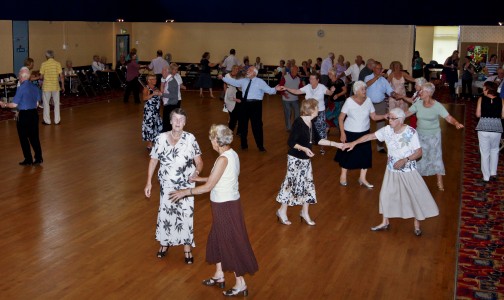Making Leeds the Best City to Grow Old In

Why is it important?
The 2011 Census shows that there are almost 150,000 people in Leeds are aged 60 and over (accounting for almost 20% of the total population). This number will continue to increase with the number of people aged 50+ is expected to rise to 256,585 by 2021, with those aged 80+ increasing to 39091;
Ensuring Leeds was an age friendly city was identified as a priority area by older people in Leeds;
Inequalities in health is a key issue for older people with ill health and social impacts affecting the poorest in the city disproportionately;
Making Leeds the ‘Best City to Grow Old in’ will have a hugely positive impact on our ability to deliver other breakthrough projects and supports an ‘Invest to Save’ approach, notably across health and social care;
Our approach:
Our approach to Making Leeds the best city to grow old in is a citizenship approach, applying to the entire population. It therefore does not include all the programmes of work in relation to health and social care for older people, which are picked up elsewhere, whilst recognising that there are obvious links and synchronicities. The approach ensures that there is a strong focus on social networks within neighbourhoods and the city; promotes social capital and participation; age-proofs and develops universal services; reduces social exclusion and works to change social structure and attitudes.
Building on present work
Leeds has had the Time of our Lives Charter since 2012, developed by older people in the city. This built on the previous work around ‘Healthy and Active Lives for Older People’ and ‘Older Better’. Crucially the Charter identifies the outcomes local older people wish and the behaviours they expect of organisations. It has already being signed by Leeds City Council, NHS Organisations and partners such as METRO (Transport for West Yorkshire).
Work has progressed under the related action plan on key priorities, most notably work led by Public Health and Adult Social Care, but also vital areas including: Parks, Sports, Libraries Museums and cultural organisations in the city.
Leeds has now been recognised as a member of the World Health Organisation Age Friendly Cities Network. We will build on existing work to audit where we are against these standards to create a gap analysis of key work streams we need to take forward.
Priorities
Whilst we wish to use the WHO audit, and the work identified through the Breakthrough Project, to develop the priorities further, but we already know (because older people have told us) that we need to include a focus on:
-
Tackling Loneliness and Social Isolation
-
Preventing Excess Winter Deaths
-
Poverty
-
Transport
-
Intergenerational Work
-
Healthy and Active Lives (Exercise, Nutrition)
-
Information (Inc. Digital Inclusion)
-
City Centre and Community Planning and Management
-
Employment (Inc. Work, Retirement, Volunteering)
-
Housing
-
Cultural Offer
-
Community Safety
-
Leeds – A Dementia Friendly Community
Governance
The work is supported by the Ageing Well Board, which has good representation from across the Council and Partners (including older people and the third sector). The work is part of the Adult Integrated Care and Prevention programme and as such can report to both the Council’s Executive Board and up to the Health and Well Being Board.
It is also one of the 7 Leeds City Council Priority areas for development and as such is regarded as a Breakthrough Project with strong support from the Executive Lead Members and Officers across the Authority.

